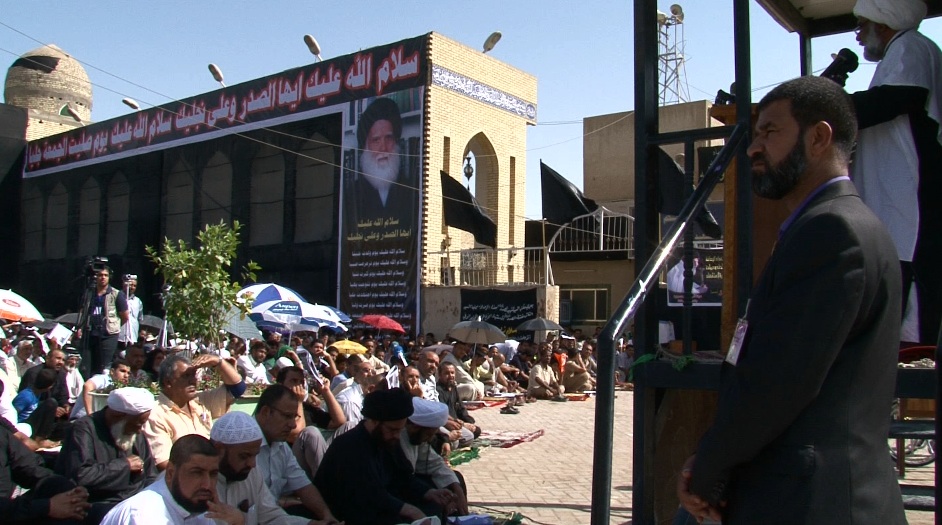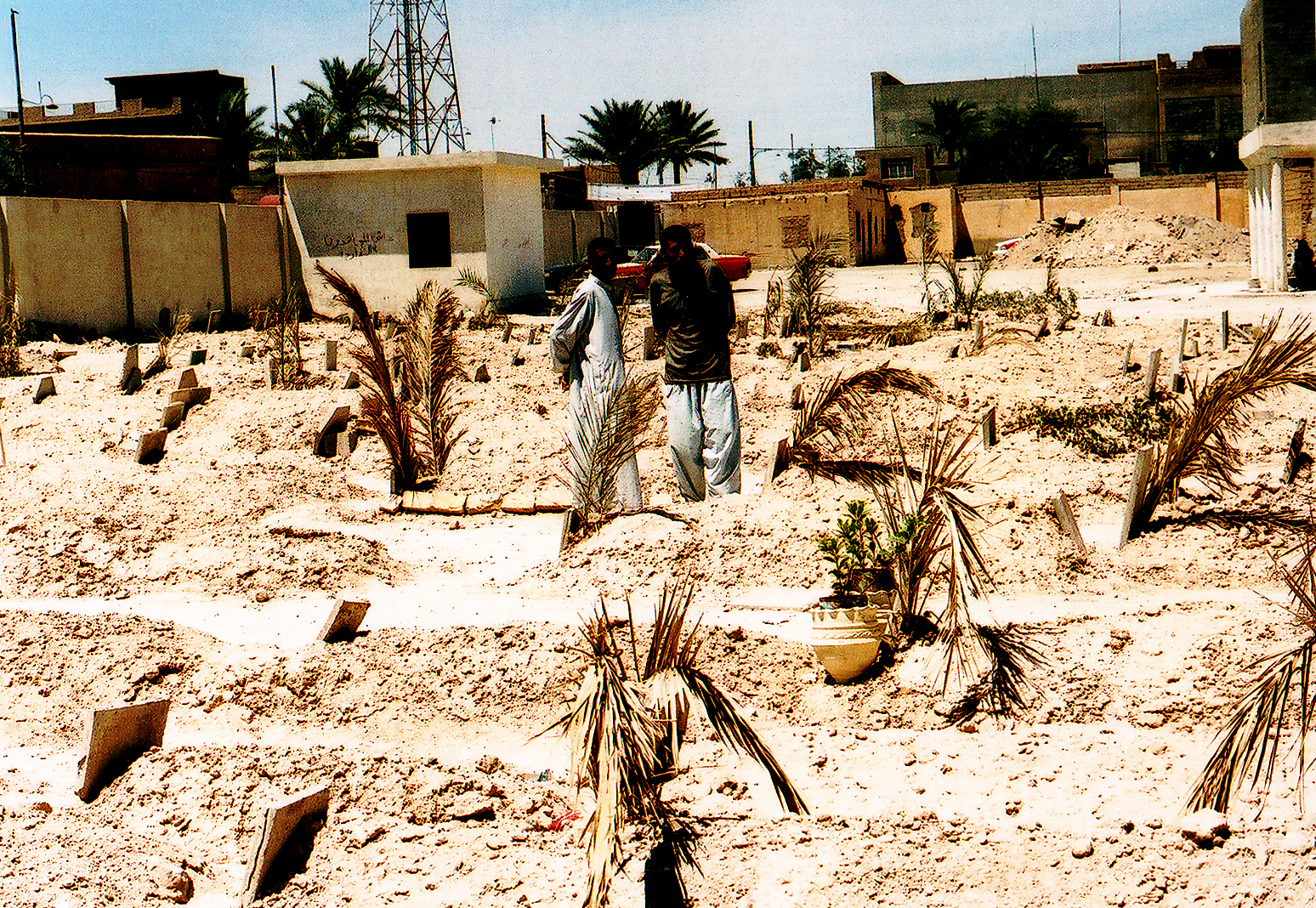
I went to Friday prayers in Sadr City today. I have to do it at least once every time I'm in Baghdad, if only for purposes of nostalgia. I was at Friday prayers in September 2003 when the call went out that Muqtada al Sadr, an outspoken young cleric, was raising a militia—the Jeish al Mehdi. Then obscure, Sadr would become one of the most important actors of the next eight years.
There was a time when Friday prayers in Sadr City were well attended by journalists and had an air of edginess—it was how you found out what was going on in the streets. These days, if you want to know what the most powerful political party in Iraq is up to, ask one of their MPs.
Most of the former militia leaders incarcerated by the U.S. and Iraqi government have been released in the last two years. The wall that cut off Sadr City from the rest of Baghdad came down about six months ago. The Iraqi soldiers on the cordon at prayers on Friday were at ease. No longer are they there to protect the worshippers from the rest of Baghdad, but simply to protect the worshippers.
Earlier this month, Sadr City, the target of so many bombings since 2004, was hit again, killing at least 18. The bombings were presumably the work of Sunni extremists still intent on fomenting sectarian violence in Iraq, and a statement from Sadr's political office was read after the prayers, urging the young men of Sadr City not to take revenge against Sunnis, but it hardly seemed necessary. The Sadrists, for now, have won. Their office in Sadr City, reduced to rubble by U.S. tanks in 2004, is bigger than ever.
There was a time when I was dismissed by other Western correspondents for arguing that Sadr had the largest following of any leader in the Iraq, the most grassroots support, and was perhaps Iraq's canniest politician. Now, in both of the parliamentary elections since the invasion, Sadr has asserted himself as kingmaker. His party has challenged the oil deals signed by Prime Minister Nouri al Maliki's government and won concessions, it has led the way in calling for a full withdrawal of U.S. combat troops, which now seems a foregone conclusion. It seems laughable now that Sadr was derided as a nobody by the U.S. in 2003 and targeted for arrest.
These days the posters of his father, Mohammed Sadeq al Sadr, are ubiquitous in Baghdad, and even adorn the Iraqi parliament. The anniversary of Sadeq al Sadr's death, at the hands of Saddam Hussein's security forces in 1999, was this month. To look around Baghdad, someone coming here for the first time could be forgiven for thinking Sadeq al Sadr was the president of Iraq.
Chronically neglected by the government, Sadr City, home to a quarter of Baghdad's population, is still dilapidated and overcrowded, but looking better than before. Now that they are in power, perhaps the biggest challenge for the politicians who pledge allegiance to Sadr is whether they can maintain their popularity, which has until now derived from their claim to speak for the powerless.




